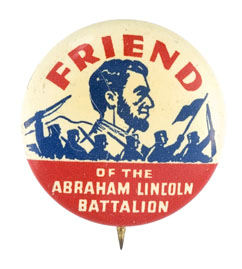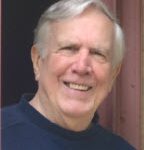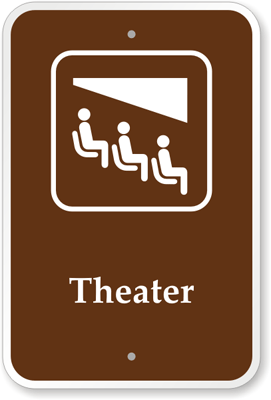I’m pleased to have Harlan Baker as the subject for this interview. Harlan is an adjunct professor in the Theatre department at the University of Southern Maine, an actor, a former member of the Maine legislature, a union activist, and democratic socialist.
He studied theater at Emerson College and graduated in 1969, and has a Masters in Theater from the University of Maine. As an actor he’s performed with The Theater of Monmouth, Camden Shakespeare Company. Portland Stage Company, Theater of Newburyport, New Century Theater, and of course, Acorn Productions.
Welcome Harlan.
1. You have been intimately involved with the Maine Playwright’s Festival from its beginnings as a director among other activities. Is the 2013 Festival the first one that includes plays by you? What made you submit a play this year?
I’ve only had limited experience as a playwright. My one act play “To Be Announced” written in 1995 was performed by the Hand to Mouth Players in Peekskill, New York in 2000. “Wild about Wilde” a short one man play about an actors meeting with Oscar Wilde was performed as a curtain raiser for “The Importance of Being Earnest at the Stage at Spring Point in 2007. “Jimmy Higgins” was written in 2008 and has been performed in Maine, New Hampshire, Massachusetts, and Madison, Wisconsin.This was the first time I submitted material to the Maine Playwrights Festival. I decided to submit some of my work because I felt that what I was writing should have an audience. I was also tired of directing other people’s work when I wanted my work to have a voice. I submitted two plays. The longer play about a census enumerator and a young woman he is interviewing wasn’t accepted. The two minute play that was originally read at the Crow bait Club last summer was.
2. Do you agree with the judges of the Festival that your two minute effort was the better work?
Do I ever agree with people judging my work? Do I ever agree with drama critics? I thought the longer play that I submitted was a better play in terms of the story. Did it need some fixing ? Yes! I needed to flesh out the motivations of the characters and give them some more depth. I have no idea what the judges thought as all I got was a rejection e-mail with no explanation of the weaknesses of the play. But that would have all been subjective anyway.
3. Can you describe your process in writing a two minute play in general, and your play, “A Whale of a Tale” in particular?
I didn’t set out to write a two minute play. I just wrote a short piece for the Crowbait Club and trimmed it down for the Maine Playwrights Festival. A word about the Crowbait Club, it is a group of actors and playwrights that meets monthly. Playwrights submit ten minute plays that are read by actors drawn from out of a hat. The actors have two minutes to prepare and then they read the script. A winner is chosen based on the audience’s applause at the end of the evening. But the reason I like it is that is forces me to meet deadline.

4. What do you hope is the audience’s experience in witnessing a 2 minute play? How about your 2 minute play in particular?
The two minute play is almost if not a skit or comedy sketch unless it is a serious piece which is generally not the norm for the Crowbait Club. “A Whale of A Tale” is based on numerous encounters I have had with petitioners in downtown Portland or Boston trying to get me to donate to their. I sometimes get the urge to pull their leg by telling them a tall tale as a way of getting out of donating. So- I wrote a play about a guy who makes up a version of “Moby Dick” when he encounters a young woman with a Save the Whales petition. But then his tall tale turns into a real story of when a woman he liked stopped talking to him and wouldn’t return a book of his that he loaned her. By the end of the play there is the hint that this encounter will turn into a relationship. I think the reaction of many people to the play was that it was “Cute”. It was just a little diverting story nothing more.
I just scribbled out the play in one sitting then went back and made revisions and kept making them.
5. How does the selected playwright benefit from the Festival or the Crowbait Club? The actors? The director? Is anyone in the role of teacher/mentor or is everyone basically on the same level? What is the practical effect of that in terms of benefit?
The playwright gets to hear the words and see actors carry out the objective of the characters. Just trying to imagine the characters in one’s own mind is very limiting. Plus you will see something that you might not have realized was there because of what the actor and director discovers in your work. Of course the Maine Playwrights Festival allows for growth and some development of your script. The Crowbait club on the other hand is a one shot deal and you will only hear a reading of your work . The actors have a limited time to look at the script, so one is often in for some surprises. But you can always learn from that. There is no mentor or teacher in both the Crowbait Club and the MPF. I think some playwrights will reevaluate their work after seeing it and make changes. But for the most part you are on your own.

A political button worn by supporters of the unit: “Friend of the Abraham Lincoln Battalion”. (Photo credit: Wikipedia)
6. In this year’s Festival you also participated in the 24 hour play feature. What elements of the play were proscribed in advance? Did these make it harder to come up with a play or easier? Can you describe the experience of writing your 24 hour play “On the Road to Castellon”. Were you happy with it when it was staged? Why?
Every playwright was given a location, which was a beach, a prop and a line of dialogue that had to be used. The prop was a doll and the line of dialogue was “Abara Cadabara. This is restrictive and forces people to be very creative about how they use these three items. I had given some thought to what I would write about for some time before the 24 Hour Playwright festivals began. In fact I had given it quite a bit of thought when I sat through previous years 24 Hour play Festivals.
I had always wanted to write a play about the Spanish Civil War since I was in college. Hemingway’s only play, “The Fifth Column” is about the Spanish Civil War and I once met a guy who was a member of the Abraham Lincoln Brigade who fought in Spain for the Loyalists.
I had no idea what the story was going to be only that I had to set it on a beach use a doll and have that silly phrase worked into the script. After I was handed the three items and picked my cast and director like picking playing cards from a deck I went to Ruskies, a favorite bar, and started to think of a story. Why not have two characters trying o smuggle a message through the front lines on a beach. The message is in the doll and in code, “Abara Cadabara! I decided to make one of the characters mute. I get so tired of actors thinking that the number of lines they have determines how important the roles are, so I decided to have one character who doesn’t talk.
In the story the two characters a man and a woman, who are also circus performers, are stopped by a guard on the beach. Eventually the mute who is tired of being taunted by the guard jumps the guard. In the confusion of the fight the guard is wounded and signals for help. The woman gives the message to the mute and tells him to go and deliver it while she holds off the guard allowing the message to get through. It’s sort of a 1940’s melodrama.
My director was Reba Short of the Children’s Theater of Maine and I was very pleased with the way she approached the material and staged it. The direction was taut and there were moments of quiet that contrasted with the end. There were only two things that I would have changed if we had the time and resources. I would have liked the guard to have a rifle and a bayonet. There is something very menacing about someone poking through your belongings with a bayonet. We had to settle for a pistol. I also would have taken Reba’s suggestion that the woman doesn’t drop the gun at the end but is seen in the fade out holding off the guards with it.
7. How much of writing a short play involves employing the techniques of writing a short story?
It is similar except that you are just writing dialogue not inner thoughts and descriptions.
8. You are an experienced actor and director. How does each of those roles affect how you go about writing a play? Do you also write in other forms?
Acting helps you understand why a character is there in the first place. Every character in a play must have a reason for being on stage. Sometimes plays are just mouthpieces for the author’s politics. So we get a rant. That may be nice for a political stump speech but what or why is the character there in the first place. What is he or she trying accomplish in your story. When I write a play I let the director worry about directing it and try not to interfere with his or her direction. If I am clear about the characters intentions as a playwright that should be obvious to a director. If I am not clear and the director needs more information then I look at what changes can be made in the script to clarify the characters intentions. Writing also means getting out the red pencil when needed as well. I’ve also written two short stories that I am looking to get published.
 9. You have written, produced and acted in your full length play, Jimmy Higgins: A Life in the Labor Movement. What do you hope the audience takes away from a performance of it?
9. You have written, produced and acted in your full length play, Jimmy Higgins: A Life in the Labor Movement. What do you hope the audience takes away from a performance of it?
One thing I hope they take away from my play is learning something they may not have known about Labor and Socialist history in this country. For instance one person came up to me after the show and told me they didn’t know Henry Ford had a private army of thugs to keep his workers in line. I also thought that having Higgins get caught up in the May Day riots in Cleveland in 1919 would be a bit of new information. Another thing I would hope they appreciate is the story of a guy who evolves in his relationship with the social movements around him. Higgins starts off as a spectator who is drawn into people’s struggles and later becomes a participant in a modest way. Higgins is not a great leader. He’s not even a leader. He’s just a guy who contributes his bit to the struggle. I would hope that audiences would emphasize with the character and maybe see a bit of themselves in him.
I have one little story of interest. There is a reference to a man named Bob Kantor in the play. Kantor was a real person and an organizer for the United Auto Workers who later headed the Labor Studies program at eh University of Connecticut in Storrs. After I performed the show in Boston for the Democratic Socialists of America group a many came up to me and told me he knew Bob Kantor. So, someone made a connection.
Thank you, Harlan.
Readers, comments are more than welcome. Drop down a couple of notches.
Thanks for stopping by. I’d love to hear any comment you may have. You can share a comment below or post this entry on your favorite social media website.
Sign-up via the email or RSS option in the sidebar to receive MaineLarryCrane’s latest posts. You can also follow MaineLarryCrane via the various social media platforms listed on this website.



I’m intrigued by the concept of a two-minute play. Like all else these days, plenty of experimentation is going on with crafting short-form pieces.